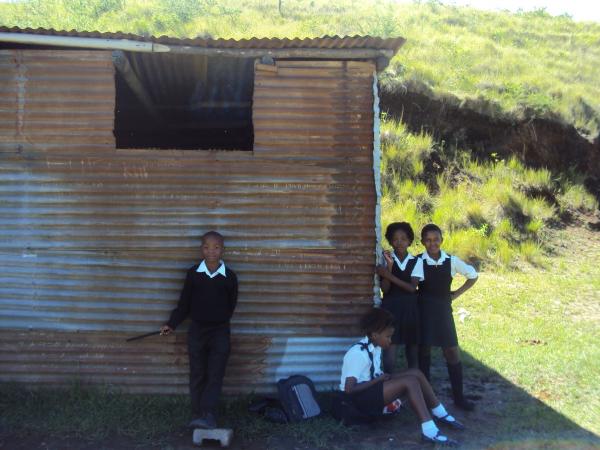Government continues to fail the youth

Lukhanyo Mangona has travelled to three provinces and witnessed first-hand the conditions in schools.
June is youth month: the time we commemorate the Soweto uprising. Many will dust off the famous picture of our lifeless hero, Hector Pieterson, carried by Mbuyisa Makhubo while his sister, Antoinette Sithole, runs alongside them. This photo will feature prominently in our social spaces, such as Facebook and Twitter.
This year, as part of my work with Equal Education, I have had the opportunity to live in three provinces. I have seen conditions of schools in Khayelitsha in the Western Cape, various parts of Eastern Cape, and Tembisa in Gauteng.
In Tembisa township, I went for a walk with an enthusiastic, new crop of Equal Education activists. They are on a mission to diagnose the state of education in our townships and rural areas in South Africa. They ask many uneasy questions: Why is their township life like this? Why are some families living in this community having to put up with RDP houses that crack all too often? Why do Tembisa learners often have to go to do their schooling in prefab structures with broken furniture?
These young people do acknowledge they are better off than their counterparts in other parts of their township, like those in Winnie Mandela informal settlement. But a lingering question is why the quality of their lives compares unfavorably with those of Jonny and Themba in Sandton.
Questions are also raised about “Abafana beNyaope”. These young boys, named after the Nyaope drug they are associated with, take an R1 commission every time they stop a taxi for a commuter. Many commuters, who are quite capable of stopping a taxi for themselves, regard this service as a menace and irritation. The youngsters are enterprising, but one young activist asks, “Why they are there in the first place? Why are they not active in the formal economy?” And why are they not in school? These probing questions are more genuine than the politicking that has become the norm in debates about youth unemployment.
As the conversation about youth kicks off every year in June, I always find there\xe2\x80\x99s little focus given to the crisis in basic education. Some youth movements fail to articulate it. I was shocked when I worked with my colleague, Samuel Shapiro, on the analysis of matric results earlier in the year. Our research showed on average 60% of Khayelitsha matriculants have been scoring consistently between 0 and 30% (in other words, an outright fail) for Mathematics, Physical Science, and Accounting.
In the Eastern Cape, I was part of a team that zigzagged through communities. We listened to stories from people at the coal face of the education crisis. Principals showed us the difficult conditions in their schools. Primary school learners in Sweetwaters have had to learn in a dilapidated prefab structure since 1999. There were the innocent eyes of learners at Bomvini Senior Primary School in Libode in their mud classroom. In Chetty in Nelson Mandela Bay, principals have given up, expecting the money that has been allocated to them by government.
What concerns me is the experience of the last five months has shown me it is considered normal for working class, black, and rural youth to have poor education. The class inequalities in our society are being entrenched.
Genuine solutions to this are complicated to find and implement. Our present situation is a result of the accumulated assault over generations on poor people's education. Equal Education has called for the Minister of Education to adopt a minimum set of norms and standards for school infrastructure. This would mean the broken schools I have seen across the country would not be acceptable; the state would have a duty to fix them. Minimum norms and standards would not cure all problems, but it would be a good start. If Equal Education wins this struggle, it will be a significant step forward for our youth.
Mangona is head of Equal Education\xe2\x80\x99s Tembisa branch.

This article is licensed under a Creative Commons Attribution-NoDerivatives 4.0 International License.


